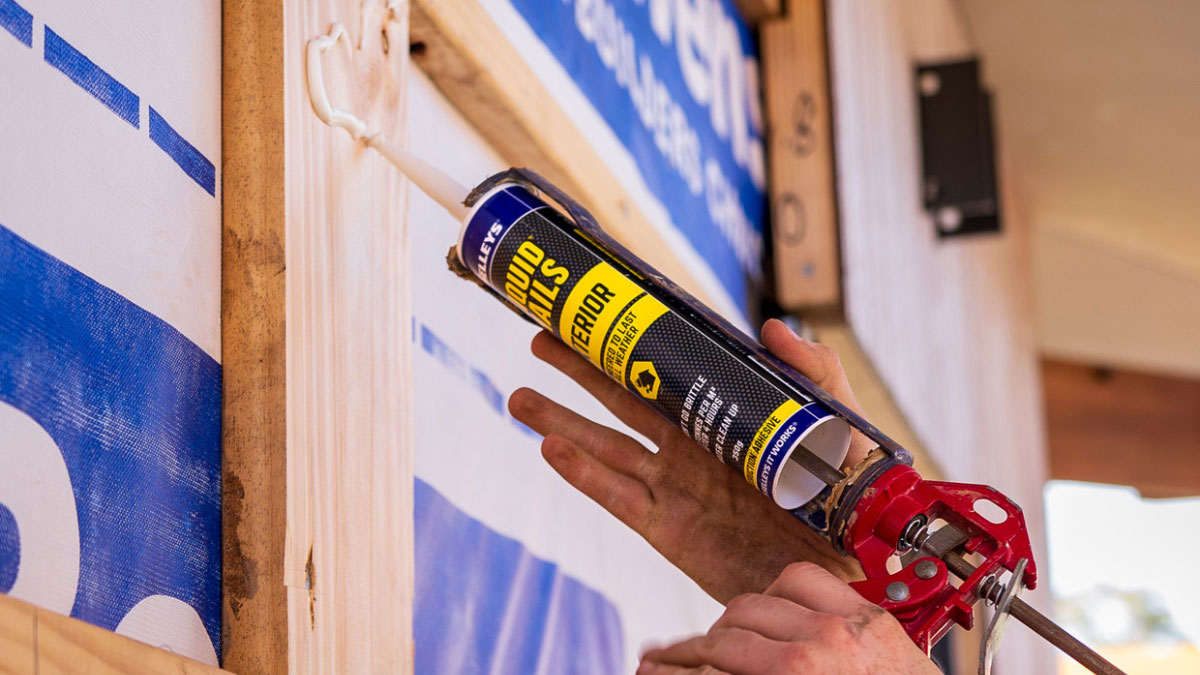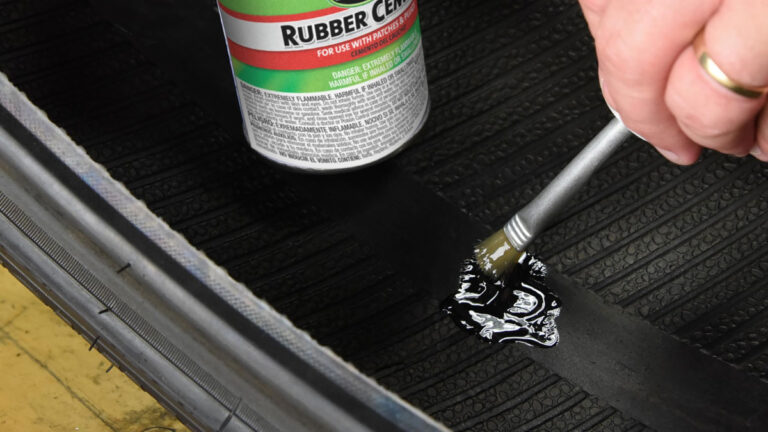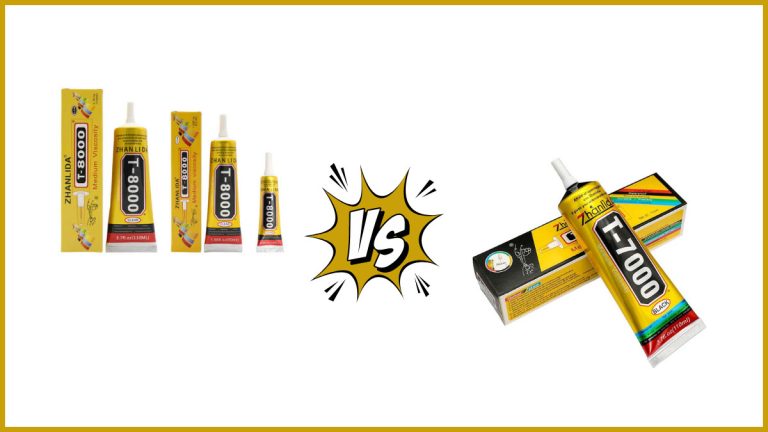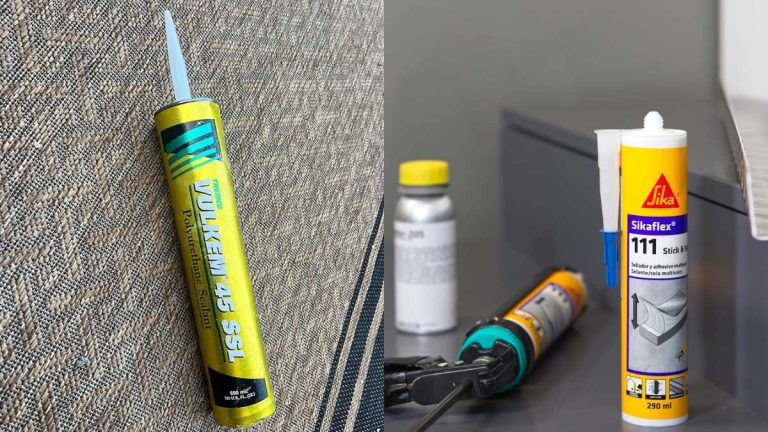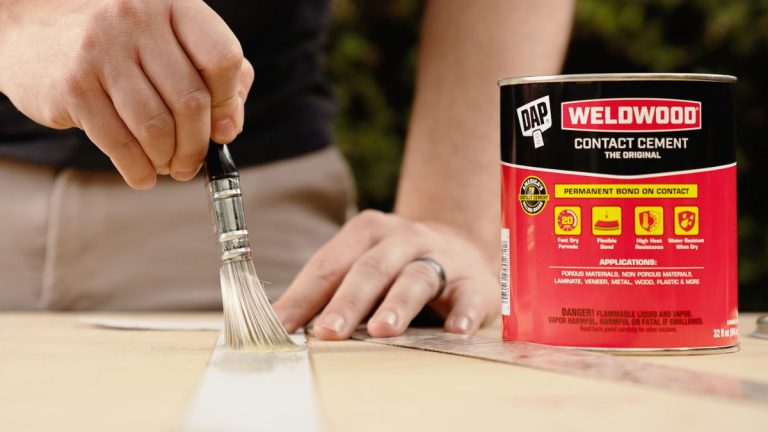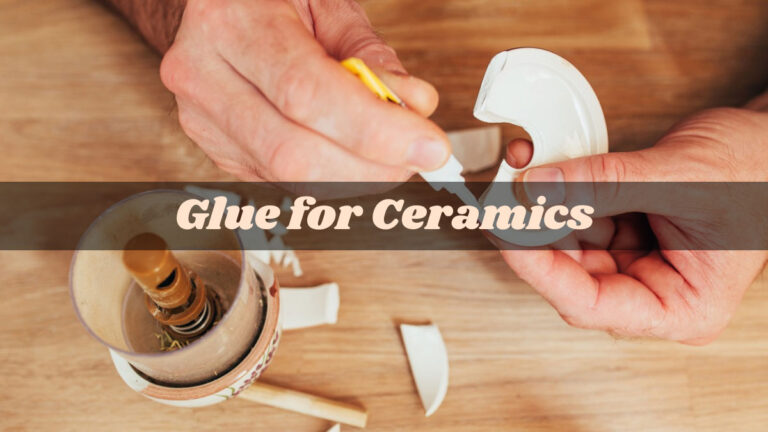Liquid Nails vs Loctite: Best Adhesive for Your DIY Projects
When it comes to choosing the right adhesive for your DIY projects, the debate often narrows down to Liquid Nails vs. Loctite. Both brands have built a solid reputation for their strong bonding capabilities, but which one should you trust for your specific needs? Understanding the differences between these two can save you time, money, and frustration.
Whether you’re tackling home repairs, woodworking, or crafting, knowing what each adhesive offers can make all the difference. Liquid Nails is known for its heavy-duty hold on construction materials, while Loctite excels in versatility and precision. Jump into this comparison to discover which adhesive will best suit your next project.
Key Takeaways
- Strength and Durability: Loctite PL Premium offers superior strength and durability compared to Liquid Nails, making it ideal for heavy-duty and structural applications. However, Liquid Nails provides good flexibility beneficial for many construction projects.
- Curing Time: Loctite typically has a faster curing time and can be more convenient for quick installations, whereas Liquid Nails often requires more time to cure, allowing for repositioning during installation.
- Versatility and Temperature Resistance: Loctite excels in a wide range of applications and offers high temperature resistance, making it suitable for both indoor and outdoor projects. Liquid Nails also performs well in various conditions but is generally less versatile.
- Surface Compatibility: Both adhesives work well on numerous substrates. Loctite is particularly effective on difficult surfaces like plastics and fiberglass, while Liquid Nails is effective on materials such as wood, metal, and drywall.
- User Experiences: Professionals and DIY enthusiasts alike praise Loctite for its immediate grip and strong, durable bonds, while Liquid Nails is noted for requiring more precise surface preparation and longer clamping times.
- Project Suitability: Choose Liquid Nails for projects needing flexibility and longer working time, particularly in dry environments. Opt for Loctite for its high strength, versatility, and quick grip, especially in environments with moisture or extreme conditions.
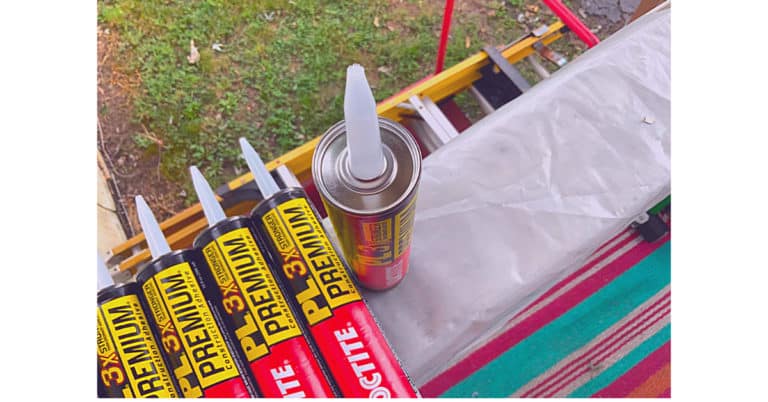
Key Features and Benefits
In comparing Liquid Nails and Loctite, it’s essential to investigate into their strength, durability, versatility, and ease of use to help identify the best adhesive for your needs.
Strength and Durability
- Loctite PL Premium:
- Offers high strength and durability, making it ideal for structural and heavy-duty applications.
- Remains 100% solid after curing, providing a robust and flexible bond.
- Withstands various temperatures from 10°F to 120°F and is waterproof.
- Liquid Nails:
- Provides good flexibility, particularly with their Heavy Duty Construction formula described as “synthetic rubber”.
- While strong, it’s less durable than Loctite PL Premium for structural applications.
- Has a longer cure time compared to Loctite, with some products taking up to two weeks to fully cure.
Versatility and Applications
- Loctite PL Premium:
- Works on various substrates including wood, laminate, drywall, concrete, brick, masonry, stone, metal, stainless steel, fiberglass, granite, and ceramic.
- Suitable for both indoor and outdoor projects due to its waterproof nature.
- Liquid Nails:
- Also effective on multiple substrates such as wood, laminate, drywall, and masonry.
- Its Heavy Duty Construction formula is designed for demanding construction materials.
- Loctite PL Premium:
- Known for its faster curing time.
- Easier to apply in various environmental conditions due to its wide temperature tolerance.
- Liquid Nails:
- Requires more time to cure, which can be beneficial for repositioning materials during installation.
- Usually comes in a more user-friendly packaging designed for construction use.
| Feature | Loctite PL Premium | Liquid Nails |
|---|---|---|
| Strength and Durability | High; 100% solid after cure | Good flexibility; less durable |
| Temperature tolerance | 10°F to 120°F | Varies by product |
| Cure Time | Faster | Up to two weeks |
| Substrate Compatibility | Wide variety | Wood, laminate, etc. |
| Waterproof | Yes | Typically, yes |
Each adhesive has its strengths based on your specific needs, whether for structural integrity or flexibility in material application. Assess your project requirements carefully to choose the most appropriate product.
Performance Comparison
When choosing an adhesive for your projects, it’s crucial to evaluate various performance metrics. In this section, we’ll compare Liquid Nails and Loctite across three key performance aspects: adhesion strength, temperature resistance, and surface compatibility.
Adhesion Strength
Adhesion Strength measures how well an adhesive bonds two surfaces together. Here’s how Liquid Nails and Loctite perform:
- Liquid Nails:
- Heavy Duty: Exhibited lower shear strength, breaking loose at 177-517 PSI.
- Fuze It: Demonstrated improved performance with shear strengths ranging from 925 to 1529 PSI.
- Loctite:
- PL 3X: Recorded an impressive shear strength of 1787 PSI.
- PL 8X: Surpassed expectations with an average shear strength of 1836 PSI, often stronger than the wood itself.
| Adhesive | Shear Strength (PSI) |
|---|---|
| Liquid Nails HD | 177-517 |
| Liquid Nails Fuze It | 925-1529 |
| Loctite PL 3X | 1787 |
| Loctite PL 8X | 1836 |
Temperature Resistance
For projects exposed to varying temperatures, understanding Temperature Resistance is key:
- Liquid Nails:
- Generally waterproof and weatherproof.
- Suitable for both interior and exterior applications.
- Loctite:
- Also waterproof and can handle a broad temperature range.
- Often recommended for environments with extreme conditions.
Surface Compatibility
Surface Compatibility is about how well an adhesive bonds to different materials. Here’s a brief overview based on the adhesive type:
- Liquid Nails:
- Heavy Duty: Works best on wood, metal, and concrete.
- Fuze It: Offers flexibility across diverse materials like glass, ceramic, and foam.
- Loctite:
- PL 3X: Compatible with the majority of construction materials, including wood, metal, and stone.
- PL 8X: Excels in bonding difficult surfaces like plastics and fiberglass.
| Adhesive | Compatible Surfaces |
|---|---|
| Liquid Nails HD | Wood, metal, concrete |
| Liquid Nails Fuze It | Glass, ceramic, foam |
| Loctite PL 3X | Wood, metal, stone |
| Loctite PL 8X | Plastics, fiberglass |
Understanding these aspects will help you make an informed choice, ensuring your project’s success.
Use Cases and Recommendations
Choosing the right adhesive for your project can save time and prevent frustration. Liquid Nails and Loctite are two popular brands, each with unique advantages. This section focuses on the best situations for using each adhesive.
Best Situations for Liquid Nails
Dry Environments:
Liquid Nails, especially the Fuze-It MAX, excels in dry environments. It forms strong bonds with various materials but may weaken under prolonged exposure to moisture.
Interior and Exterior Use:
Liquid Nails Heavy Duty offers a reliable solution for both interior and exterior applications. It’s a good choice for projects involving wood, metal, or drywall. While effective, it’s less suitable for constantly wet conditions.
Specific Applications:
For projects not exposed to continuous water, Liquid Nails is affordable and effective. Use it for tasks like woodwork, metal fixes, and installing drywall.
Best Situations for Loctite
Wet and Dry Environments:
Loctite adhesives like PL Marine and PL Premium perform well in both wet and dry environments. This versatility makes them ideal for projects in bathrooms, kitchens, and outdoor areas.
Heavy-Duty Applications:
Loctite PL Premium offers high strength and durability, suitable for structural projects. It adheres strongly to various surfaces, including concrete, brick, and metal.
Versatility in Surfaces:
Loctite excels in bonding difficult surfaces such as fiberglass, certain plastics, and rubber. It’s a versatile option for diverse project requirements.
| Feature | Liquid Nails | Loctite |
|---|---|---|
| Environment Suitability | Best in dry environments | Performs well in wet and dry environments |
| Application Scope | Effective for interior and exterior | Suitable for bathrooms, kitchens, outdoors |
| Specific Use Cases | Wood, metal, drywall | Concrete, brick, plastics |
| Strength and Durability | Strong but less durable for heavy use | High strength and durability |
Choosing the right adhesive depends on your project’s specific needs. Assess the environment, required strength, and surface compatibility to select Liquid Nails or Loctite effectively.
User Experiences and Reviews
Users have strong opinions about the performance of Liquid Nails and Loctite adhesives. Their feedback can help guide you in selecting the right adhesive for your needs.
Professional Feedback
- Expectations vs. Reality: Many professionals expect high reliability and strong adhesion from construction adhesives. But, some reported mixed results with Liquid Nails, especially on painted or non-porous surfaces. For example, one professional noted that Liquid Nails failed to bond securely on a wooden bench.
- Surface Preparation: Proper surface preparation proved crucial for successful adhesion. The pros found that any failures with Liquid Nails often stemmed from inadequate surface prep.
- Loctite Performance: On the other hand, Loctite PL products have received widespread praise. For example, Loctite PL Concrete Polyurethane provided exceptional grip on various materials, including concrete and SPF lumber, requiring significant effort to remove.
DIY Enthusiast Opinions
- Ease of Use: DIY enthusiasts appreciate adhesives that are easy to work with. Users noted that Liquid Nails often required clamping for up to 24 hours to achieve a strong bond, which can slow down projects.
- Immediate Hold: Unlike Liquid Nails, Loctite products are known for their immediate grip. For instance, Loctite PL demonstrated superior initial adhesion, which reduces the need for prolonged clamping, making it a favorite for quick DIY fixes.
- Project Versatility: Many DIY users praised Loctite for its versatility across different projects. Its ability to bond a variety of materials made it an ideal choice for many household repairs, particularly those requiring strong, durable bonds.
| Feature | Liquid Nails | Loctite |
|---|---|---|
| Adhesion Strength | Mixed results, especially on painted surfaces | Strong, durable bonds on various surfaces |
| Ease of Use | Requires clamping for up to 24 hours | Immediate grip, less clamping needed |
| Surface Preparation | Crucial for effective bonding | Effective even on less prepared surfaces |
| Versatility | Effective on wood, metal, drywall | Bonds diverse materials like concrete, plastics |
| Professional Preference | Mixed feedback | Highly praised for construction and DIY |
This section provides a deeper look at user experiences and reviews for Liquid Nails and Loctite adhesives. Understanding these insights can help you make an informed choice for your next project, ensuring the best possible results.
Conclusion
Choosing between Liquid Nails and Loctite depends on your project’s specific requirements. Liquid Nails offers strong adhesion for construction materials and excels in dry environments. It’s a solid choice for wood, metal, and drywall applications. On the other hand Loctite stands out for its versatility and precision, performing well in both wet and dry conditions. Its high strength and immediate grip make it ideal for heavy-duty and quick-fix projects.
Assess your project needs carefully, considering factors like environmental conditions and surface types. Whether you’re tackling a major construction task or a simple home repair, selecting the right adhesive will save you time, money, and frustration.
Frequently Asked Questions
Which is better for construction projects, Liquid Nails or Loctite?
Liquid Nails is ideal for construction projects due to its strong hold on materials like wood, metal, and concrete. It is particularly effective in dry environments and for interior and exterior applications. Loctite, although versatile, is better suited for bonding difficult surfaces and heavy-duty applications.
Can Loctite be used in wet environments?
Yes, Loctite products such as PL Marine and PL Premium are designed to perform well in both wet and dry environments. They are suitable for bathrooms, kitchens, and outdoor areas, making them versatile for various projects.
How does the adhesion strength of Liquid Nails compare to Loctite?
Loctite’s PL 8X outperforms Liquid Nails in adhesion strength. Loctite adhesives are known for their strong, durable bonds, making them a preferred choice for many projects requiring high shear strength.
What surfaces are best bonded with Liquid Nails?
Liquid Nails excels on surfaces like wood, metal, and drywall. It is effective for interior and exterior applications but is less ideal for constantly wet conditions and certain heavy-duty structural applications.
Is Loctite suitable for extreme temperature conditions?
Yes, Loctite products are recommended for extreme temperature conditions. They are designed to withstand a wide range of temperatures, making them suitable for various challenging environments.
Which adhesive has a quicker cure time, Liquid Nails or Loctite?
Loctite typically has a quicker cure time compared to Liquid Nails. DIY users appreciate Loctite’s immediate grip, reducing the need for prolonged clamping and making it ideal for quick fixes.
Are Liquid Nails and Loctite waterproof?
Both Liquid Nails and Loctite adhesives are noted for their waterproof properties. However, Loctite is often recommended for both wet and dry environments, ensuring more versatile application.
What do professionals think about Liquid Nails and Loctite?
Professionals have mixed results with Liquid Nails, particularly on painted or non-porous surfaces, emphasizing the need for proper surface preparation. Loctite products receive widespread praise for their strong adhesion and versatility, making them a favorite among both professionals and DIY enthusiasts.

